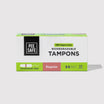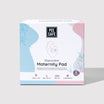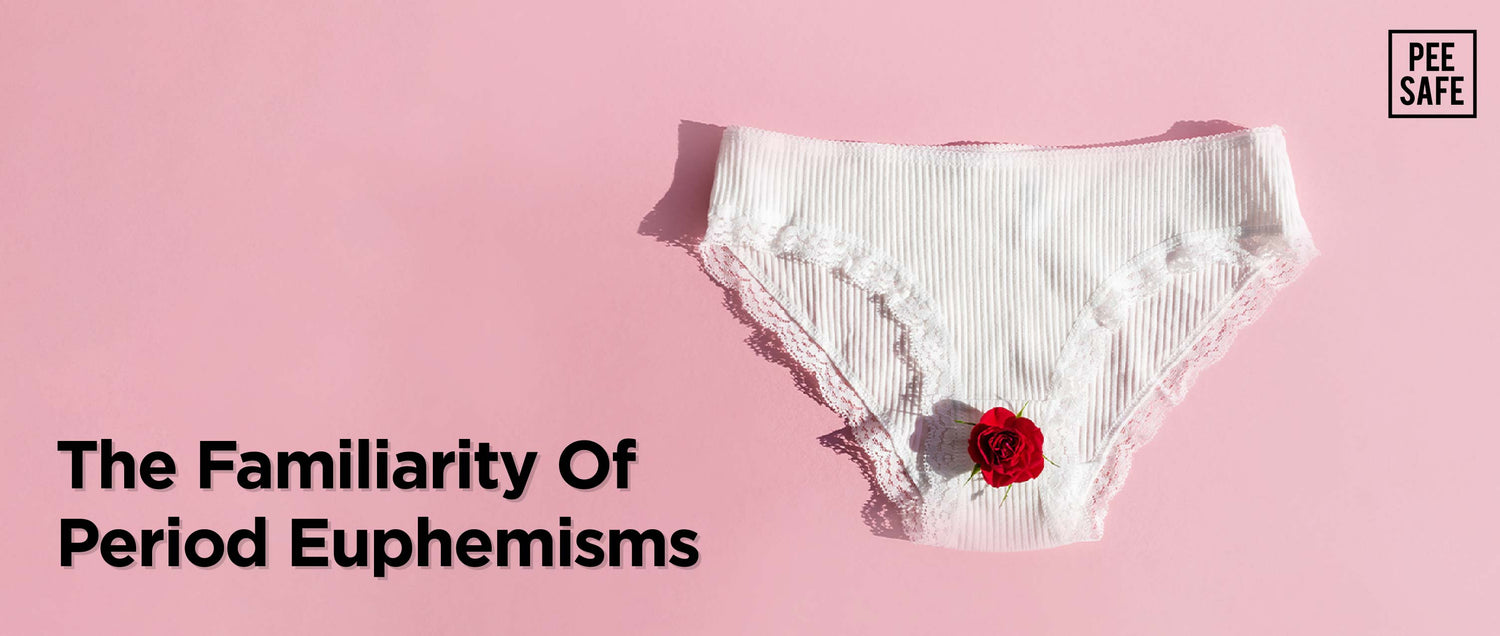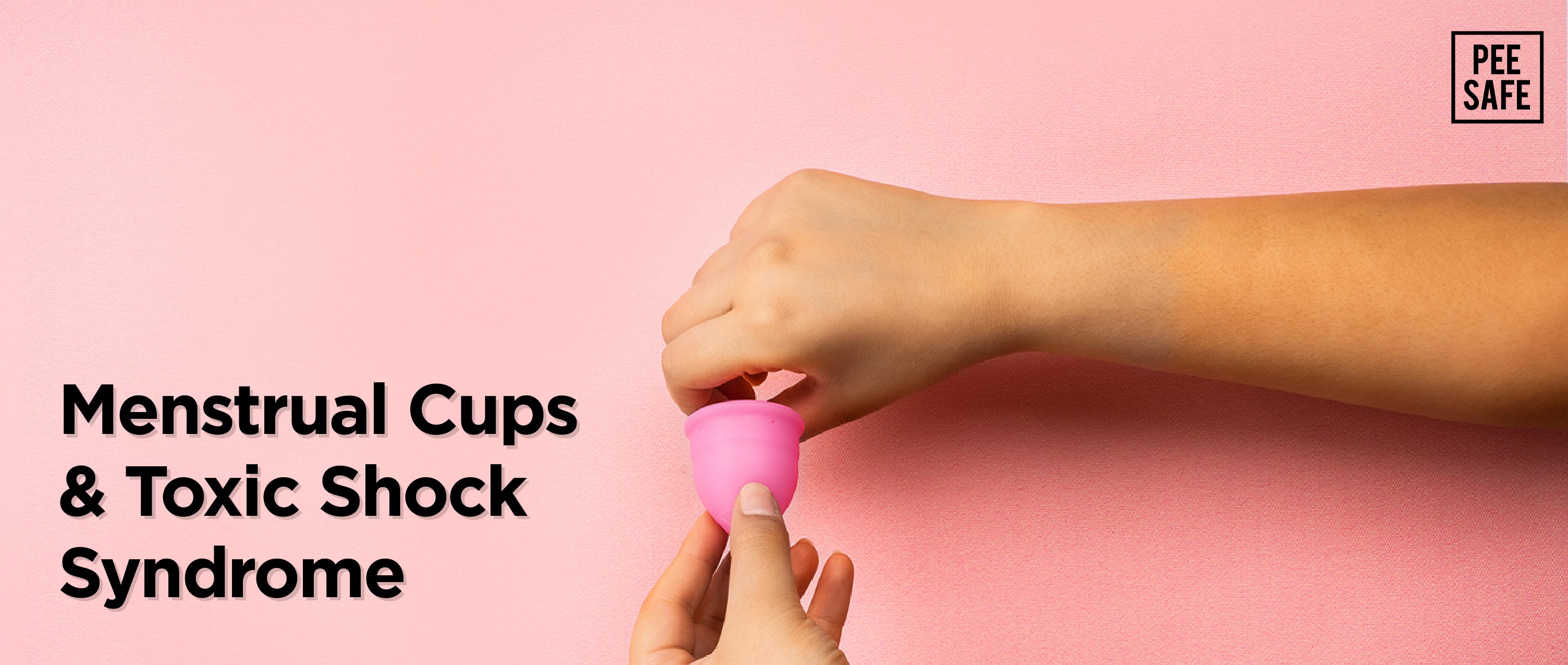“That time of the month”, “woh din”, “chums”, “mera mahina aaya hai” - these are some commonly heard phrases used to refer to a bodily function experienced by half of the world’s population- “menstruation”, or as we say it more commonly, “periods”.
Throughout history, societies and cultures have devised various euphemisms to talk about or refer to, periods.
But before we get started,
What Exactly Is A “Euphemism”?
A “euphemism” refers to a figurative or indirect expression used to discuss something without actually mentioning it. In this case, in order to communicate about menstruation discreetly or in a socially acceptable way, these terms are used to work around cultural taboos, sensitivities, or discomfort.
Period Euphemisms In India And Around The World
While menstruation is a universal experience, the vocabulary we use to discuss it differs greatly between cultures and places. Period euphemisms, which range from poetic metaphors to absurd slang, provide an intriguing view into the various ways societies negotiate the topic of menstruation, which is often cloaked in secrecy and tradition.
In India too, these euphemisms reflect the cultural diversity and complexity of a nation that encompasses a multitude of social norms, traditions and languages.
Some of the common euphemisms we’ve all heard about:
- Aunt Flo: A common English euphemism that personifies menstruation as an unwelcome relative who visits periodically.
- Crimson Tide: This American euphemism makes a comparison between the intense ocean phenomenon and the color of menstrual blood, which is red.
- That Time Of The Month: This euphemism, borrowed from English, is often used in urban and educated circles in India. It avoids direct reference to menstruation but is understood by most.
- Mahina Aaya Hai- One of the most widely used euphemisms in India, particularly in Hindi-speaking areas. It is a polite and generally accepted phrase because it directly acknowledges the regularity of menstruation without specifically mentioning it.
- Chums- It is a slang term that has grown in acceptance among friends and peers. It gives the conversation a little familiarity and levity.
- Ladies’ Problem- Menstruation is commonly referred to as a "ladies' problem" to maintain discretion and steer clear of direct discussions in traditional or conservative settings.
- Red Days: This euphemism alludes to menstruation without actually saying it by using the symbolism of colour. Red is a subliminal reference because it represents menstrual blood.
- The Curse: This euphemism, which is common across cultures, suggests that menstruation is a burden or otherwise undesirable.
- On The Rag: This slang originated first in the United States, refers to a sanitary pad or tampon while using the term “rag”.
- Little Sister’s Arrival: Prevalent mostly in the Chinese culture, this euphemism is used to maintain a family-oriented metaphor.
- Code Red: Duplicating the military terminology, this euphemism suggests an emergency situation.
The ways that various societies discuss menstruation are as varied as the cultures themselves, and language is a window into culture. People have used a wide variety of euphemisms throughout history to covertly refer to this common biological process known as menstruation. These linguistic disguises, which are frequently tinged with humor or symbolism, aid in navigating the challenging terrain of cultural taboos and sensitivities related to menstruation.
Why Do People Use Euphemisms?
It's interesting to note the prevalence of period euphemisms in a world where open and honest conversations about menstruation should be the norm. These linguistic masks serve a function with strong cultural, historical, and societal roots.
- Cultural Taboos- Menstruation has long been stigmatized in many cultures. Euphemisms enable people to communicate about menstruation invisibly while navigating these cultural constraints.
- Embarrassment And Shame: Because of the stigma associated with menstruation, some people may feel embarrassed or ashamed to discuss it in public. Euphemisms offer a way to talk about the subject without actually facing these emotions.
- Comfort And Discretion: When discussing menstruation in public or professional settings, euphemisms can help some people feel more at ease and allow for discretion.
- Historical/Inherited Precedent: Through the generations, euphemisms for menstruation have been passed down and have assimilated into language and culture.
Reason Behind The Stigma
History, culture, and societal expectations, all play a significant role in the stigma associated with menstruation. The following are some important causes of this stigma:
- Lack Of Education: Lack of knowledge about menstruation can result in myths and misconceptions, which reinforce negative attitudes.
- Media Portrayals: Media frequently upholds stereotypes and inaccurate depictions of people who menstruate, reinforcing societal taboos.
- Gender Stereotypes: The stigmatization of menstruation, which makes it seem like a "women's issue" rather than a normal bodily process, can result from traditional gender roles and expectations.
- Religious Beliefs: Menstruation has a negative stigma attached to it because it is seen in some religions as a sign of impurity or sin.
- Lack Of Access: The stigma and secrecy surrounding menstruation may be exacerbated by inadequate access to menstrual hygiene supplies and facilities.
How To Get People To Stop Using Period Euphemisms?
While there is a place for period euphemisms in society, open and honest discussions about menstruation must also be encouraged. The following actions can help break the ice:
- Education: Menstruation myths can be debunked and accurate information can be provided by inclusive, comprehensive sex education programs.
- Accurate Media Representation: Encourage media outlets to portray menstruation in a realistic and positive way, avoiding stereotypes.
- Normalize Conversations: With friends, family, and coworkers, start a conversation about menstruation. Create a culture where talking about it is common.
- Advocate For Access: In order to lower barriers to hygiene and comfort, promote and help initiatives that increase access to menstrual hygiene products and appropriate facilities.
- Challenge Taboos: Challenge societal and religious taboos that support the stigma associated with menstruation. Open communication should be pursued in order to improve understanding.
- Celebrate Diversity: Recognize and appreciate the diversity of menstrual experiences, including those of transgender and non-binary people.
- Language Matters: Menstruation should be discussed in a respectful and clear manner, with an understanding that it is a normal and necessary aspect of life.
People have benefited greatly from the use of period euphemisms in navigating the social and cultural stigmas associated with menstruation. Although they have a purpose, it's important to strike a balance between discretion, openness, and education. We can work together to create a world where menstruation is discussed openly, without shame or secrecy, by breaking down taboos, fighting for access, and fostering understanding. It's time to end the taboo surrounding menstruation and accept it as a typical and natural aspect of human biology. To know more, visit the Pee Safe website.
-
✍️ This article was curated by Kanchan Kapoor



































